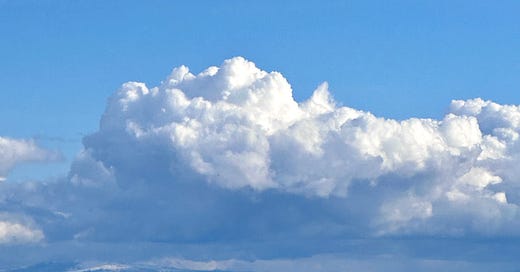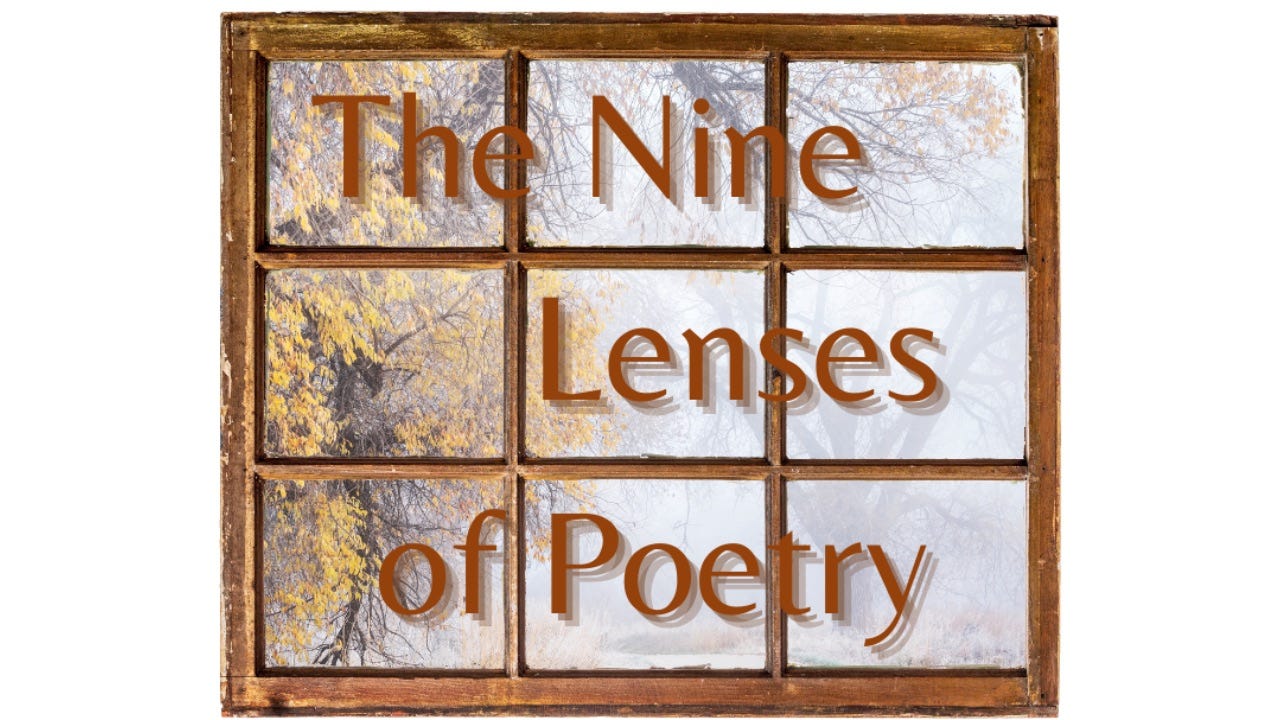A Gift
A day so happy.
Fog lifted early, I worked in the garden.
Hummingbirds were stopping over honeysuckle flowers.
There was no thing on earth I wanted to possess.
I knew no one worth my envying him.
Whatever evil I had suffered, I forgot.
To think that once I was the same man did not embarrass me.
In my body I felt no pain.
When straightening up, I saw the blue sea and sails.
Polish; trans. Czeslaw Milosz
I’ve been thinking about how we turn to poems and why. Wisps of words on the page. Narrow aisles of consonants and vowels, planted rows of image and metaphor, feeling, statement and observation. Here, “A day so happy…whatever evil I suffered, I forgot.” Not only do poems make a path across the page, but also, they imply the existence of a path in the larger sense. In order for there to be a reason for a poem to exist, there must be a journey. Which is also to say life itself is a path and that we’re on it. Poems are ways of marking that path, cairns stacked by the roadside, reminders of where we’re going and where we’ve been.
And more than that, reminders of what we already know, clues from our inner compass. How often, when a poem is read aloud, do we hear a roomful of people give a collective sigh? I think of that sigh as a physical expression of recognition, a sign that the words that hover in the air resonate with something that is already inside of us.
In Milosz’s poem, “The Gift,” we are given a bookmark, a way to hold a state of what I like to call “even though.” As in, even though we experience suffering, there is a corridor of contentment, even joy. We all have reason to be reminded of that. We remember, and we forget. And then we remember. I am grateful for such reminders, and always surprised by the power of a poem to bring me––even for a moment, an hour, a day–––back to myself.
There are many different ways poems do this. Ways they return us to the land of larger self. Milosz’s poem is what I like to call a “Soul Keeper” poem. Another poem might bring us back by dwelling deeper in the ordinary–––a day at work, or the tasks and disarray around the house–––inviting us to see the grace beyond and within those realms. Like at Marie Howe’s poem, “What the Living Do,” which offers us these lines:
“This is the everyday we spoke of.
It’s winter again: the sky’s a deep, headstrong blue, and the sunlight pours through
the open living-room windows because the heat’s on too high in here and I can’t turn it off.
For weeks now, driving, or dropping a bag of groceries in the street, the bag breaking,
I’ve been thinking: This is what the living do.”
I think of this as a “Bard of the Every Day” poem. And a fine one at that. We see ourselves, as if from a distance, immersed in the human experience, its scuffed and poignant beauty. A reminder that each of us as poets have our own way of guiding the reader toward that gasp of knowing. We needn’t all take the same route. In fact, we couldn’t if we tried! But what matters is that we bring ourselves, and whoever else is alongside us on the page, to somewhere larger and more resonant, somewhere we’ve never––and have already–– been.
Invitation
Starting in February, I’ll be teaching a class on The Nine Lenses of Poetry, nine modes of writing poems. I like to visit the many different ways poetry brings us home. It helps me as a reader and a writer to be reminded that there isn’t one right way, that each way of seeing is valuable, each way guides us toward our own north star. If you would like to join me there on the path of poetry, take a look the link above. We will meet on Sundays from February 11th-March 10th. Classes will be recorded. More information ( and a video) on the landing page. For poets and poetry lovers.






Thank you for this. Thank you for quoting a couple of my favorite poets. Thank you for reminding me that poetry takes us "somewhere we’ve never––and have already–– been." So beautifully put.
My sweetheart and I were on the roof this morning, loosening the cap on our woodstove pipe to let out a bird who had fallen in. Then I come inside to read your post, reminding me of the everyday, the magical. Sigh.